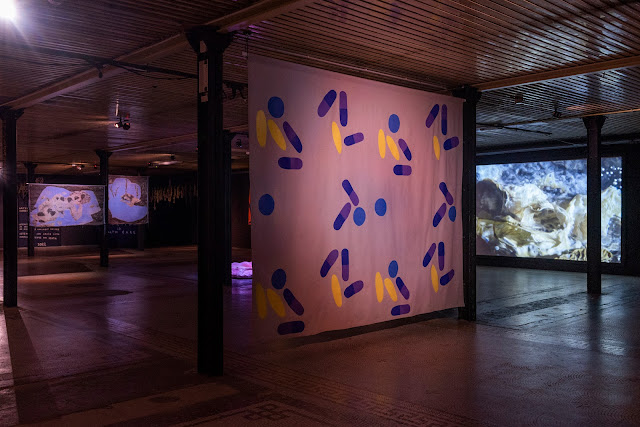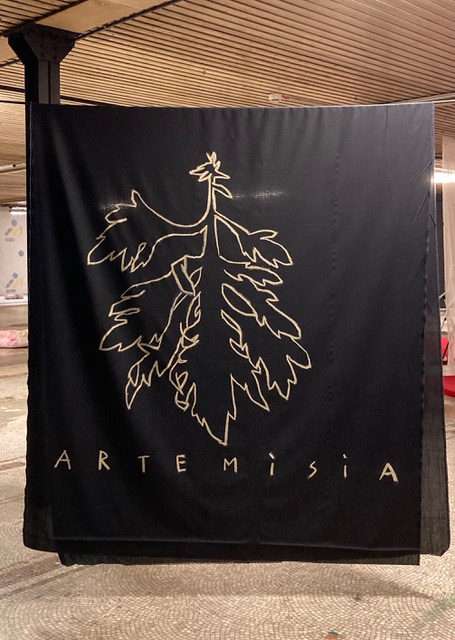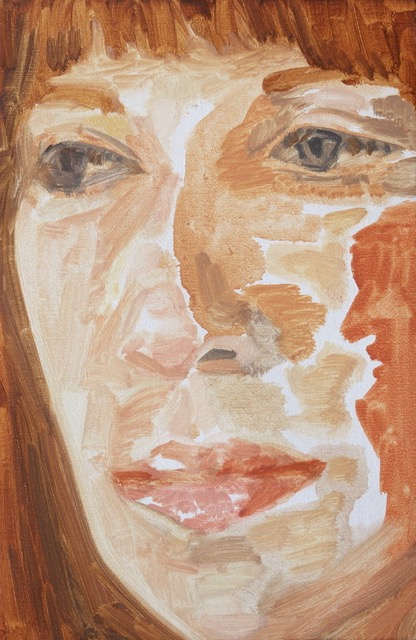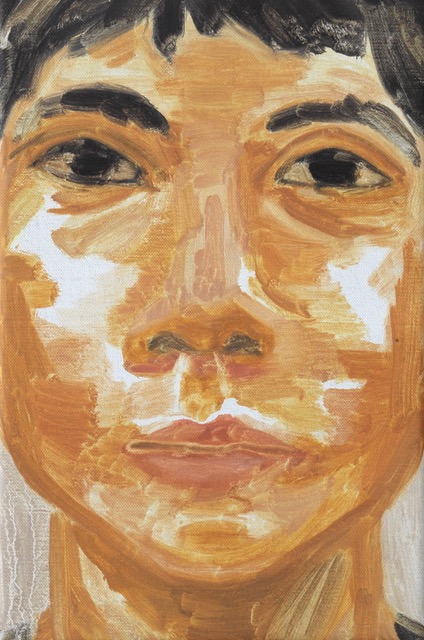Artemisia
We might think of gardening as a romantic past-time. Yet, gardening has been an important tool for colonialism and possession, but also emancipation. Eline De Clercq (°1979, BE) created a lesbian Gesamthof in the monastery garden of Kunsthal Extra City and Morpho. As plants are non-binary, the garden is a safe space for lesbians. She brings together a community of humans and non-humans to work together with care for their ecology. For this exhibition, Eline selected accessible medicinal plants from the garden to reveal class issues in an intersectional context. Medical care in most countries is still reserved for those who can afford it. This selection of plants thrive everywhere and are freely available in the wild, even in urban areas. Historically, they are used to heal female or othered bodies. Eline's curation culminates in the presence of Artemisia, which grows all over the globe and is used against illnesses like malaria. In some cultures, it is known to cure hormonal imbalance and induce natural abortions, but when doses incorrectly it is deadly poisonous. The plant is an illustration of the dangers female bodies go trough as a result of inequality and sexism, but also becomes a symbol of freedom. With the growing world-wide criminalisation of abortion and the endangered Roe vs. Wade court rule in the US today, Artemisia might even be a symbol for the fight for self-determination and equal rights in the 21st century.
Text by Zeynep Kubat
Artemisia is an installation of plants and fabrics in Sugar for the Pill: plants from the lesbian Gesamthof, 2022. Artemisia Vulgaris, Salvia Officinalis, Mentha Citrata. Wool fabric on a cotton rope with a depiction of the goddess Artimisia on one side and the leaf of the Artemisia plant on the other side in oil paint. Cotton fabric on the wall with text informing about the plant, the use, the religion and other abortifacient plants, with a danger warning all written in oil paint.
Sugar for the Pill is a group exhibition curated by Zeynep Kubat and my work was shown alongside the works of artists Margaux Schwarz, Laurie Charles, Chantal van Rijt, Lysandre Begijn, Saddie Choua, Aurélie Bayad, Carole Mousset, Lisa Ijeoma, Pélagie Gbaguidi.
 |
| Image: Axelle Degrave |
 |
| Image: Axelle Degrave |
 |
| Image: Axelle Degrave |
Antwerp Art Weekend 2022 central exhibition Sugar for the Pill, curated by Zeynep Kubat.
































